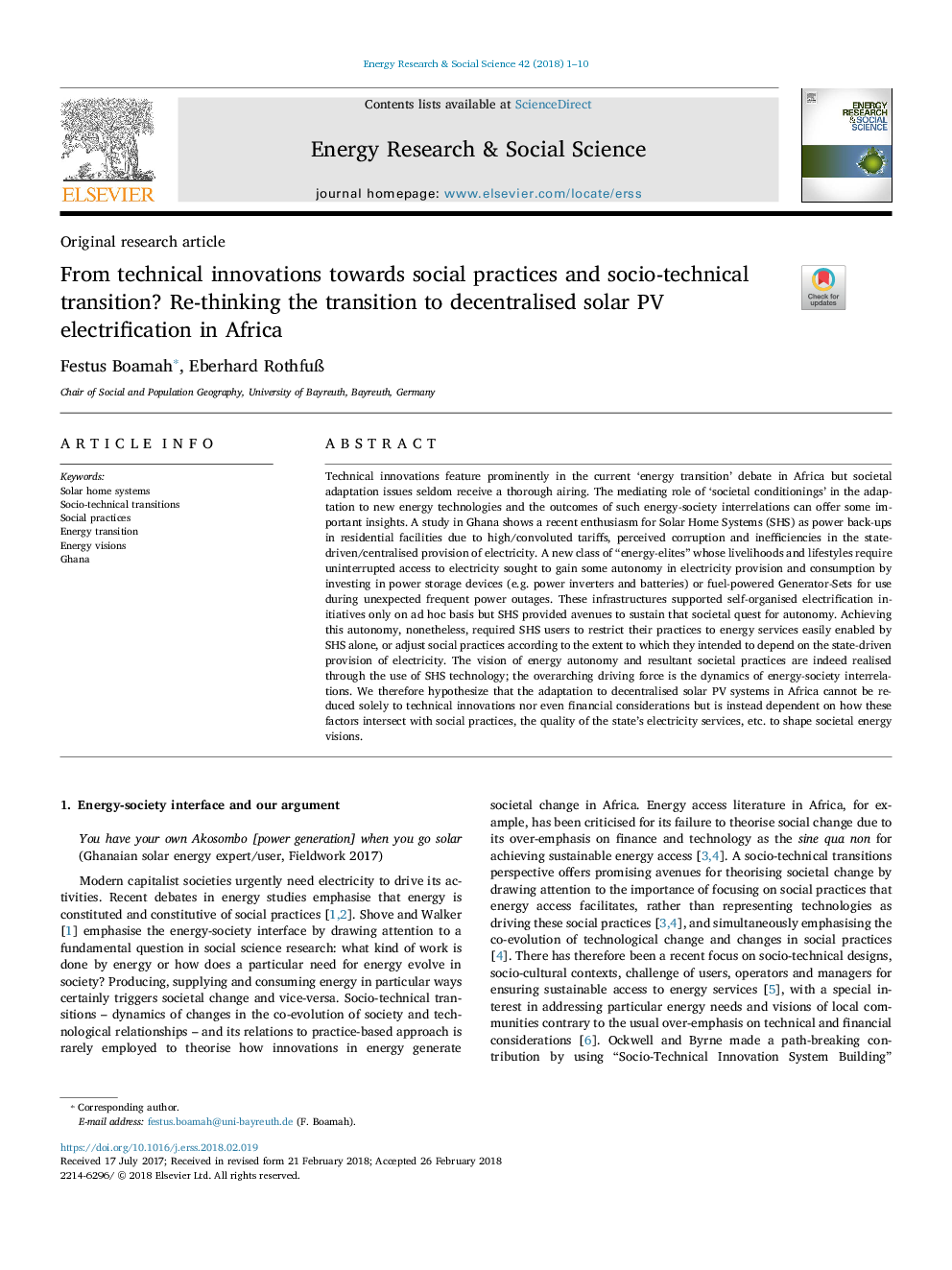ترجمه فارسی عنوان مقاله
از نوآوری های فنی به سوی شیوه های اجتماعی و انتقال اجتماعی-فنی؟ دوباره تصور کنید که انتقال برق فشرده خورشیدی در آفریقا غیر مجاز است
عنوان انگلیسی
From technical innovations towards social practices and socio-technical transition? Re-thinking the transition to decentralised solar PV electrification in Africa
| کد مقاله | سال انتشار | تعداد صفحات مقاله انگلیسی |
|---|---|---|
| 99527 | 2018 | 10 صفحه PDF |
منبع

Publisher : Elsevier - Science Direct (الزویر - ساینس دایرکت)
Journal : Energy Research & Social Science, Volume 42, August 2018, Pages 1-10
ترجمه کلمات کلیدی
سیستم های خانه خورشیدی، انتقال اجتماعی و فنی، فعالیت های اجتماعی، انتقال انرژی، دیدگاه های انرژی، غنا،
کلمات کلیدی انگلیسی
Solar home systems; Socio-technical transitions; Social practices; Energy transition; Energy visions; Ghana;

